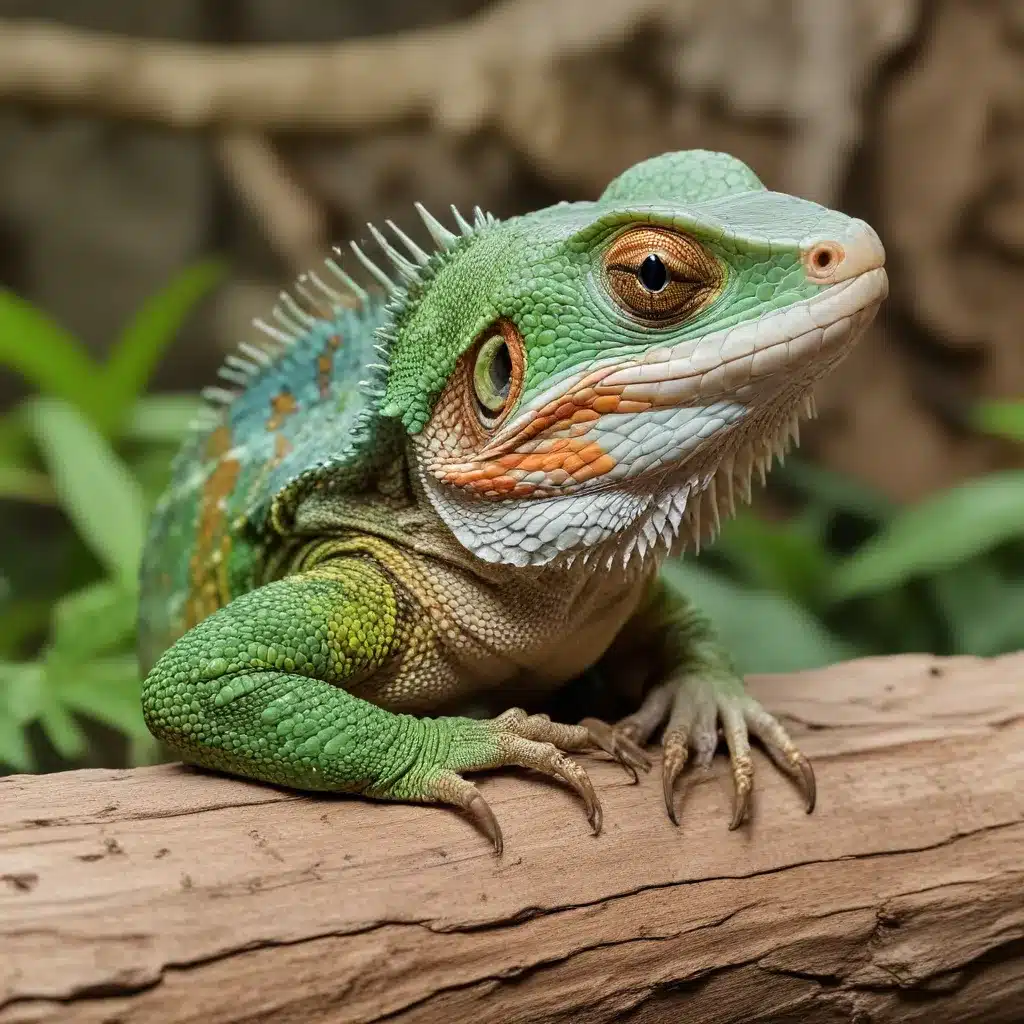
Responsible Ownership: Understanding Reptile Care Requirements
Keeping exotic reptiles as pets can be a rewarding and fascinating pursuit, but it also comes with significant responsibilities. Proper reptile husbandry, which encompasses housing, feeding, and overall care, is essential for the well-being of these animals. Before considering the acquisition of an exotic reptile, it’s crucial to familiarize oneself with the specific requirements of the species and ensure that the necessary resources and knowledge are in place.
Reptile enclosures must provide the appropriate temperature, humidity, and substrate to mimic the animal’s natural habitat. Proper lighting, including both UVA and UVB wavelengths, is crucial for the reptile’s metabolic processes and overall health. Additionally, the enclosure size should accommodate the adult size of the animal, allowing for adequate movement and natural behaviors. Feeding schedules, prey selection, and vitamin/mineral supplementation must be tailored to the specific species to ensure optimal nutrition.
Responsible reptile ownership also involves staying informed about the species’ typical behavior and signs of illness or distress. Recognizing and addressing health issues promptly can make a significant difference in the reptile’s well-being and lifespan. Routine veterinary check-ups, preventive care, and emergency preparedness are all essential components of responsible reptile husbandry.
Breeding Exotic Reptiles: Ethical Considerations and Best Practices
The breeding of exotic reptiles is a complex and nuanced topic that requires careful consideration. While the prospect of producing rare or unique morphs can be enticing, it’s crucial to prioritize the well-being of the animals and adhere to ethical breeding practices.
Responsible breeders should possess a deep understanding of the species’ natural history, breeding behaviors, and genetic traits. Careful selection of breeding pairs, based on genetic diversity and the avoidance of deleterious traits, is essential to maintain the health and vitality of the population. Proper incubation techniques, hatchling care, and social structure management are all crucial aspects of ethical reptile breeding.
It’s important to recognize that the exotic reptile trade can be fraught with unethical practices, such as overbreeding, poor living conditions, and the exploitation of wild-caught specimens. Responsible breeders should be transparent about their practices, prioritize the welfare of their animals, and actively work to educate and inform the wider reptile community.
Legal Considerations for Exotic Reptile Ownership and Trade
The legal landscape surrounding exotic reptile ownership and trade can be complex and varies significantly across different regions and jurisdictions. It is essential for reptile enthusiasts, breeders, and pet owners to familiarize themselves with the applicable laws and regulations in their area.
In many regions, the possession or sale of certain reptile species may be subject to specific permits, licenses, or restrictions. These requirements are often based on the species’ conservation status, potential for invasiveness, or public health and safety concerns. Failure to comply with these regulations can result in hefty fines or even criminal penalties.
Moreover, the transportation and interstate or international trade of exotic reptiles may be subject to additional regulations and documentation requirements. Proper paperwork, such as health certificates and CITES (Convention on International Trade in Endangered Species) permits, may be necessary to ensure legal compliance and the ethical treatment of the animals.
Responsible reptile enthusiasts should thoroughly research the applicable laws and regulations in their area, consult with local wildlife authorities, and stay up-to-date with any changes or updates to the legal framework. By prioritizing compliance and ethical practices, reptile owners can contribute to the sustainable and responsible management of these fascinating creatures.
Navigating the Exotic Reptile Market: Responsible Acquisition and Sale
The exotic reptile market can be a complex and multifaceted landscape, with a wide range of species, morphs, and sources available. For both prospective owners and breeders, it’s crucial to navigate this market with care and diligence, prioritizing the well-being of the animals and the ethical treatment of all involved.
When acquiring an exotic reptile, it’s essential to select a reputable and responsible breeder or seller. Avoid impulse purchases or sources that cannot provide detailed information about the animal’s history, health, and care requirements. Responsible breeders should be transparent about their practices, offer guidance and support, and prioritize the long-term welfare of their animals.
For those interested in breeding exotic reptiles, it’s important to thoroughly research the specific species, understand the legal requirements, and develop a comprehensive plan for responsible husbandry and sales. Prioritizing the genetic diversity and health of the breeding population, as well as the proper care and placement of offspring, are key considerations.
The sale of exotic reptiles should also be approached with care and consideration. Responsible sellers should provide potential buyers with detailed information about the species’ care requirements, offer guidance and support, and ensure that the animals are being placed in suitable homes. Proper documentation, including health certificates and any necessary permits, should be provided to both buyers and relevant authorities.
By prioritizing responsible acquisition, breeding, and sales practices, reptile enthusiasts can contribute to the sustainable and ethical management of the exotic reptile trade, ensuring the well-being of these fascinating creatures.
Conclusion: Embracing Responsible Reptile Ownership and Trade
Keeping exotic reptiles as pets can be a deeply rewarding and educational experience, but it also comes with significant responsibilities. By prioritizing proper reptile husbandry, ethical breeding practices, and compliance with legal requirements, reptile enthusiasts can play a vital role in the responsible management of these unique and often endangered species.
Through continued education, community engagement, and a commitment to the well-being of the animals, reptile owners and breeders can help shape a future where exotic reptiles thrive in captivity and in the wild. By navigating the complexities of the exotic reptile trade with care and diligence, we can ensure that these remarkable creatures continue to captivate and inspire generations to come.
For those interested in exploring the world of exotic reptiles, we encourage you to visit exoticreptilesforsale.com to learn more about responsible ownership, ethical breeding, and the legal considerations involved. Together, we can foster a thriving and sustainable reptile community that prioritizes the welfare of these remarkable creatures.


